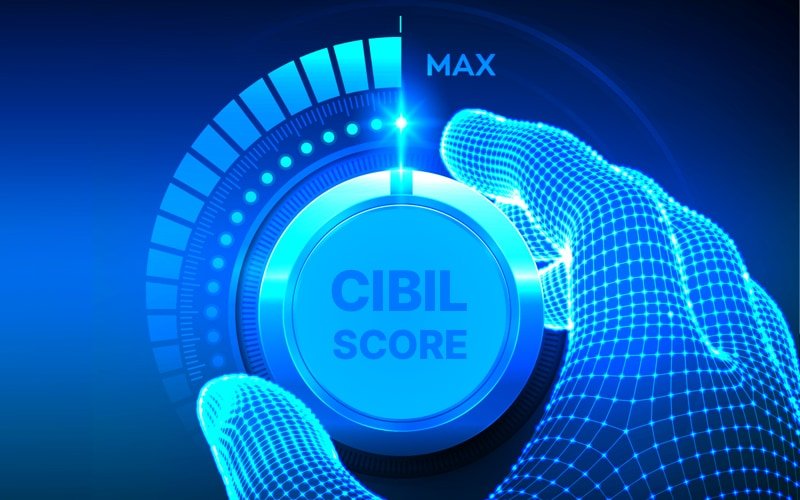Your CIBIL report can be a deal breaker when availing any sort of credit. Also referred to as a credit report, it provides a ready summary of your past credit history, while the CIBIL or credit score is a three-digit numeral that reflects this particular information. Credit records help lenders understand your repayment habits, based on which. They can decide whether or not to accept your application. Thus, a CIBIL report is an invaluable pre-requisite for both the lender and the borrower.
What Is the Difference Between CIBIL Report and CIBIL Score?
A CIBIL report is a record of all the credit transactions made over the years such as home loans, car loans, overdraft facilities, credit cards, personal loans, etc. It contains details of both borrowings and repayments. Which prove decisive in evaluating the financial behaviour and credit worth of prospective borrowers.
Also derived on the basis of this record is a three-digit number, known as CIBIL score that encapsulates your entire report. In other words, it serves as a numeric summary of your credit history. Ranging from 300 to 900, with 300 being the lowest credit score and 900 the highest score.
How Is CIBIL Report Generated?
TransUnion CIBIL Limited, previously known as Credit Information Bureau (India) Limited, is India’s premier and oldest credit information bureau. It releases credit reports, called Credit Information Report (CIR), giving a detailed account of an individual’s credit history. These records are passed on to the bureau by banks and financial institutions on a regular basis.
Apart from CIBIL, there are three other credit agencies that generate credit reports. These are Equifax, Experian and CRIF Highmark. Each one of them gathers and stores financial data. When requested by individuals and lending companies, they prepare credit reports; assigning each one a specific statistically formulated credit score.
Importance of a CIBIL Report
A CIBIL or credit report is a highly valued record due to the following reasons:
- It lets lending companies correctly assess a loan applicant’s creditworthiness.
- Banks and lending institutions can effectively appraise loan eligibility and decide on the quantum of loans to be sanctioned. Thus, a good CIBIL score will make it easier for you to avail of loans at favourable rates of interest and repayment terms and vice versa.
- Regular monitoring of the credit report helps inculcate financial discipline, allowing you to steer clear of potential debt traps.
- A CIBIL score in the range of 750 and above promises adequate leverage for negotiating suitable loan deals with lenders.
Understanding Your CIBIL Report
A credit report contains multiple sections describing every credit availed and the repayment journey. The main components include:
- CIBIL score – Your three-digit CIBIL score is calculated per your credit behaviour. As reflected in the ‘Accounts’ and ‘Enquiries’ sections of the report.
- Personal information- This section contains your name, gender, date of birth. And identification numbers like PAN, passport number and voter ID number.
- Contact information – It lists your address (up to 4 addresses allowed) and telephone numbers.
- Employment information – This covers your monthly or annual income profile as reported by banks and financial entities.
- Account information – It comprises details of credit facilities like the names of lending institutions, type of credit facility (personal, home, overdraft, etc.). Account numbers, date of opening, date of last payment made, loan amount, current balance and monthly payment records.
- Enquiry information – Each time you apply for a loan or credit card, lenders will access your CIBIL report. These enquiries are listed in the report with the lender’s name, type of credit, amount of credit applied for and date of application.
Note: In case, you find a red box above ‘Account Details’ in your CIBIL report. It implies that the highlighted information is currently under dispute and will be removed upon resolution.
Types of Credit Reports
Credit bureaus generate two kinds of credit reports. These are:
- Credit information report – A credit information report is created for individuals. It mentions your previous credit behaviour and the corresponding CIBIL score.
- CIBIL company credit report – A company credit report shows the credit payment history of a company compiled from various credit institutions. This report permits lenders to weigh the lending risks objectively, resulting in quick and better financial decisions.
Important Terms Found in a CIBIL Report
Your CIBIL report may contain certain words that could make comprehension difficult. Given below is a list of some commonly used terms:
| Terms Found in CIBIL Reports | What They Mean |
| Standard (STD) | Payments have been made within 90 days |
| Non-performing asset (NPA) | Payments are pending for over 90 days |
| Sub-standard account (SUB) | The account has remained an NPA for over a year |
| Credit limit | Total credit extended on your credit card and overdraft |
| Repayment tenor | Duration of the loan repayment period |
| Enquiry | Details of every loan or credit card ever applied for |
| Control number | Nine-digit unique number that helps the credit bureau track your CIBIL report |
How to Get CIBIL Report for Free
Several lenders and third-party websites provide authentic credit reports for free. Additionally, the Reserve Bank of India mandates that all credit information companies must issue one free credit report in a calendar year.
Individuals can follow these easy steps to obtain their free CIBIL report:
- Visit the website of your chosen credit bureau or lender
- Navigate to ‘My Account’ tab on the top right side of your screen
- Click on the ‘Get your Free Report’ link and check your free score and report
While accessing a credit bureau portal, if the result is not displayed. It means you may have already applied for your CIBIL report that year.
How to Resolve CIBIL Report Errors
Inaccuracies in the CIBIL report can bring down your credit score and hurt your chances of receiving future credit. Hence, it is necessary to ensure your credit information is updated and accurate. Here are the steps to resolve discrepancies should you spot any:
- Fill out an online dispute form on the official website of the credit agency
- Submit the dispute form; the field will be marked ‘Under Dispute’
- The error will then be taken up with the concerned lending institution and you will receive status updates through your registered email
- Once the dispute is accepted, corrections will be made to the credit report. The total turnaround time for resolution is usually 30 days
Summing Up
The significance of a good CIBIL score and CIBIL report is paramount, especially while trying to get a housing loan. In the event that you have a poor CIBIL score. It may be advisable to undertake immediate remedial measures to improve your CIBIL score first and then apply for credit to avoid loan rejection, which could harm your credit score even further.



